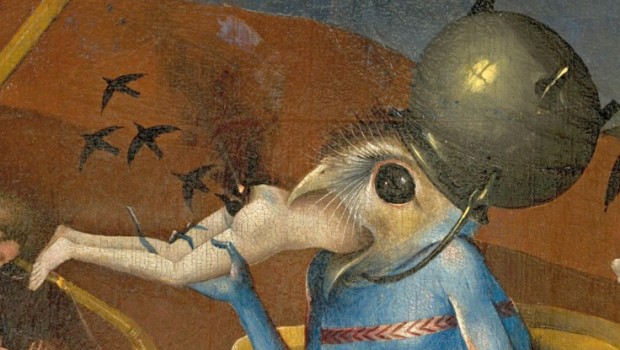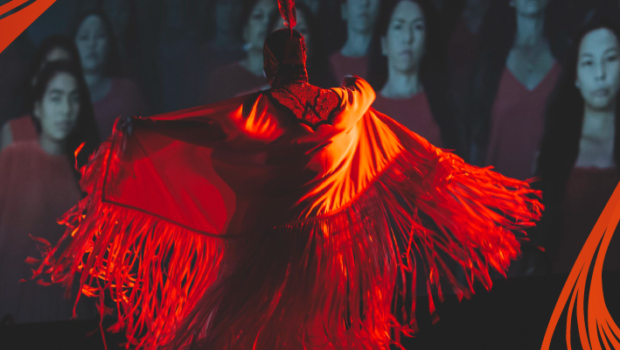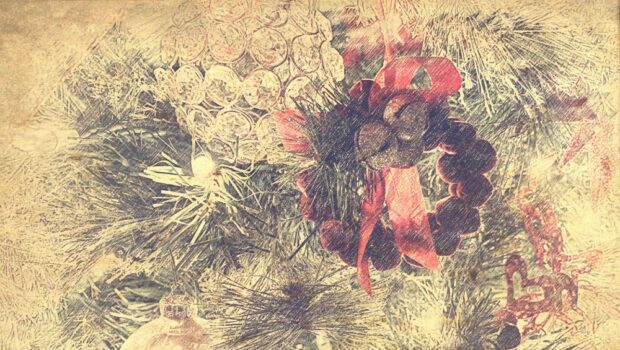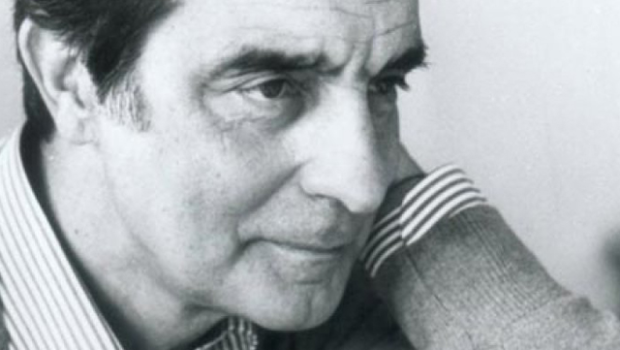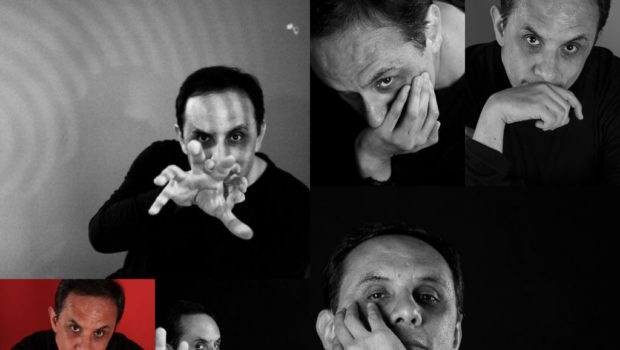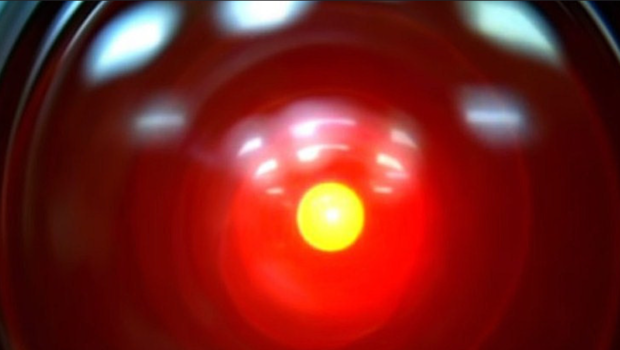The Iniquitous Agony of Literature
Adriana Díaz Enciso
Part Two
In part one of these reflections, I discussed some of the most obvious evils that undermine literary creation nowadays: the urge to turn authors into pawns of celebrity culture (often with their own consent, because vanity is a credulous, loose maiden); a literary milieu increasingly subjugated to the laws of both market and greed, and the zeal for making all literature uniform—supported by endless creative writing courses competitions—through the props of a dominant discourse which, it has been proved, sells well.
I didn’t go far enough. I forgot to mention, for instance, that in the publishing industry contracts for a novel are signed with the film already in mind, even if not a single filmmaker has read the book yet, and nobody has any authentic creative impulse to make a movie inspired by it. The film industry, in turn, and in shameful shack-up with the great publishing consortiums, produces non-stop technically impeccable “adaptations” of best-sellers (old and new), propped up with all the visual, acting and sonic clichés of the new commercial cinema that tries to pass as cultured. The voracity doesn’t end with books. The lives of authors are also exploited this way, so that the audience is gradually less capable of distinguishing literature from entertainment. As if, for instance, watching an alleged Virginia Woolf come at the hands (literally) of an also alleged Vita Sackville-West on screen offered a path parallel to that of reading, recognisable, safe, and devoid of thorns: that of fiction, not in its literary sense, but in the sense of a lie adorned with the most sophisticated technical tricks. It’s not surprising that, carpet-bombed with the products of that other equally lucrative, equally incontinent industry, novels written as if they were already their own film abound—a litany of clichés, both in content and form, to which the reading public reacts like a Pavlovian dog.
Nor did I discuss the proliferation of labels that promptly suffocate and systematize any passing idea, whether inspired or not, that may come out of an author’s pen or keyboard: flash fiction, visual poem, any form of exploration of poetic language, however ancient or however avant-garde its origin may have been, is now little more than the description of a product, accompanied by well-known ads: “Learn to write flash fiction”, “Everything you need to know to make visual poems”, etc. The cognitive processes that this kind of publicity sets off are no different from those that make us look up a recipe in Google, or how to unblock pipes, do your nails or whatever on YouTube, but that doesn’t seem to alarm anybody. Another thing I failed to mention is the practice of some publishers and literary agencies who, just as they reject an author, announce their “editorial services”, with the implicit promise that, once she’s passed through the magic crucible of their wise advice—that doesn’t come cheap—said author will have become one that is accepted and published, on her way to glory and fortune, her work now duly pasteurised.
I could fill up many pages with more examples of the brazen prostitution and cheapening of literature in our confounded century, but in this second instalment I want to go deeper into those traps that aren’t so brazen; those hidden (albeit in steady collusion with the market) and perhaps more dangerous ones that define a new totalitarian and sanctimonious ideology.
I had already mentioned Amanda Gorman and the absurdity of young poet laureates. Now it’s our turn to talk about what Gorman writes. Let’s start by acknowledging that she has all the attributes to represent the new discourse: black, daughter of a single mother, she seemingly suffers from an auditory processing disorder and as a child had a speech impediment. All those personal and social challenges feed her activism, something that, at first sight, is no doubt laudable—and I’m not being ironic. However, things take on another dimension when we realise that this young woman’s trajectory as an activist and presumed poet is practically undistinguishable from her trajectory as a celebrity. Represented by the model agency IMG, she receives (and accepts) commissions such as writing for the Superbowl, and she will be the new face of an Estée Lauder “ethical” campaign. Gorman has talked with great seriousness about the relationship between fashion and poetry, and her image in a plethora of pictures as a professional model is no doubt captivating—she’s very beautiful. Recently she appeared at the Met Gala embodying her ideal image of the Statue of Liberty, her own laurels on her head included. And we all know that the climax of her campaign has been, so far, her reading of “The Hill We Climb” at the inauguration of Joe Biden in January this year.
Needless to say, reading your work as a poet at the inauguration of a president is a terribly risky business. For the soul, I hasten to clarify. No doubt it was much more pleasant to see a passionate, intelligent and beautiful young woman declaiming her thoughts than watching the Trump re-election we were fearing so much, during a long apocalyptic lockdown winter. Furthermore, perhaps Gorman will indeed become president in 2036, as is her ambition, and she may even be a good one, whatever that means. Her political aspirations are not in doubt. However, what concerns us here is a very simple question: is she a poet?
The answer is equally clear. No, she’s not. Perhaps she could have become one, one day. Impossible to know, but I fear that her ambition has closed the door of that path for her forever. What this young woman is instead is, virtually, a brand, something I find horrifying. “The Hill We Climb” opens with a few lines that might point at something like a poem, only to tumble down at once into a heap of thoughts that are as pretty as they are hackneyed about union, fraternity, hope, justice and peace. Poetry is nowhere to be seen. It would have made more sense if they had announced she’d read a speech, but how could they do that, if she’s the young poet laureate! As a poet she was therefore announced, and whereas her text fails utterly to become poetry, it does secure the victory of being a well intentioned and nationalist speech at the same time. Read during the inauguration of the president of the United States, it doesn’t seem as innocent anymore, nor as hopeful.
The show might have ended there, if not for the fact that Gorman was immediately hailed all over the world as a great poet, with not a whit of critical questioning visible in these praises. To dare to say that what she writes isn’t poetry from whatever angle you may look at it has become since, in the eyes of many, equal to racism, ignominy, the stigma of not being woke.
Is it really so difficult to understand that mistaking a pile of pretty words about social problems and history’s wounds that propose desirable solutions, trivialises and insults not only poetry, but the very victims of brutality and injustice, preventing us from seeing beyond our immediate circumstances? Poetry is not a matter of making yourself comfortable and being sentimental. It is rather all the opposite, as Paul Celan, for example, knew all too well. But imagine the reactions that reading a poem such as “Death Fugue” on a president’s inauguration would provoke. That would be the end of the party, right? What would the press talk about then, in that silence…
Biden’s inauguration was followed by the rather futile discussion about who had the right to translate the precocious star and who didn’t. I say futile because the debate has been around identity politics, driving even more attention toward Gorman, but it says nothing about literature. How could a mediocre text, which isn’t a poem in any way, spark such a fierce international debate? Looking toward the mirage of what is supposedly right and fair, the discussion seemed to be blind to that other form of power at play—the power of publicity and celebrity culture to the detriment of the literature that is purportedly being defended. It is a well-known fact that because of the polemic the translators Víctor Obiols (Cataluña) and Marieke Lucas Rijneveld (Netherlands) were left out of the project of translating The Hill We Climb, Obiols by force, Rijneveld standing down voluntarily. I won’t repeat here what has already been said from every possible perspective. I recommend John McWhorter’s piece published last March in It Bears Mentioning as one of the most sensible considerations I’ve read about this issue. However, I still haven’t found anywhere in this debate the fundamental question: how can we fight so much over a literary translation, when there is no literary work to translate?
All this is relevant because Amanda Gorman is the clearest recent example of what literature, and all the arts, mean for the new good consciences. It’s all about pushing up onto the podium self-appointed authors and artists that come from underrepresented minorities, paying no attention whatsoever to the merits of their work, to their talent or lack thereof; it’s all about strengthening political positions out of a supine ignorance about the nature of art.
If that were all, the problem would be serious enough, but the implications of these trends reach much farther.
The history of humanity is littered with atrocities, some of them perpetuated for centuries. I am not blind to the centenary oppression and dehumanisation of human groups at the hands of other humans, and the movements aiming at redressing all this that we are witnessing now, their rage even, aren’t only comprehensible, but necessary. The arrogance and ignorance in considering a culture, a race or gender superior to another has cost innumerable lives, destroyed many others, and has impoverished us all in abysmal ways. However, the ignominy of inequality and injustice cannot be solved through a simplification of history, encouraging a revanchist position, and far less by trampling on the foundations of some of the highest manifestations of, precisely, our humanity. A great poet’s merits can’t be assayed in terms of her race, her social status, her disabilities, or lack of them. They are assayed through her work. Nothing more. Of course, access to education and opportunities must be universal, and of course it hasn’t been. In that sense, I celebrate that the times are changing, and can only lament that they aren’t changing fast enough. But if what we’re defending is our common humanity, we cannot leave the dignity of what’s human outside the door.
Haven’t the most vociferous woke consciences, bent on turning art and literature’s scene into a social action parade, realised that their crusade is one of institutionalisation, coercion and persecutory spirit, all of them deadly weapons against artistic creation? What is more, don’t they realise how patronising and, in fact, discriminatory this settling of scores really is? Which poet who has at least the slightest bit of dignity, let alone talent, will be happy with being published because she’s black or belongs to any other underrepresented race, or because she has some disability, and not because of the objective appreciation of the quality of her work? Shouldn’t she feel insulted instead?
Mexican poet Malva Flores expresses this superbly in her interview for Confabulario in July this year. She states that this attitude, reflection of a futile and lazy sense of guilt, “has perverted reality”, and I agree completely. Literature, in its creation as much as in the act of reading, is an experience of reality transformed by our inner being —our sensitivity, our intelligence and our imagination. That experience has never been, never will be, coercive, because we’re talking about human freedom, the freedom of thought, of speech and words, with their infinite paradoxes and mystery.
The problem of injustice, the horror of the atrocities that we humans are capable of, aren’t fixed through complying with statistics of representation in the arts. They aren’t fixed either by decree about which subjects are acceptable or not in literature, or through drawing up a diagram of available subjects to determine who has a right to write about them and who doesn’t. Which human creation would ever survive such restrictions? In order to create, and read, literature, the necessary resources are quite different. They start with the ability to perceive, appreciate and represent the subtlety and ambiguity that are inseparable from the experience of being alive; with being willing to discover, nurture and value a world of one’s own, unique and inimitable. Sharing that infinity of worlds through language is the true richness of literature, before which no manifesto can prevail.
The good consciences are relentlessly trying to tear off that richness and trample on its ruins in the name of “a better world”. In a perverse circle, their victories go back directly to the publishing market, that backs the appropriate themes and authors, whatever the literary quality of their work may be. Then these works are announced as “radical” books, magnificent, revolutionary and any other superlative, even if most are the repetitions of a mould, ceaselessly saturating a stagnant milieu where no discovery or subversion seem possible anymore.
It is just a trend, you may say. It will pass. Perhaps. But at what cost? When we see in Canada Asterix and Tintin comics being burnt, don’t we wonder what follows? For it is very clear to me that what comes next is literature, and that when the witch-hunt starts, there is no work that is not guilty in the eyes of the judges. It would be wise of us to think right now on what follows the burning of books, an action that is always atrocious. If the prohibition of music in Afghanistan with the Taliban’s return horrifies us, and with good reason, shouldn’t we be horrified too by the burning of comics, and the arbitrary moral rod with which the sanctimonious hordes try to measure books and authors?
There is in the language of this new moral an expression, used pejoratively, which troubles me deeply: “dead white men”. And woe betide those who dare to count many of these dead white men among their favourite authors! It is the scorn, or hatred, rather, with which they are mentioned what disturbs me. I understand of course where it comes from; needless to say I agree that the life and work of notable men and women of any race, living or dead, should be known and appreciated equally, and I of course know that that hasn’t been the case. But I do find sickening the cognitive leap from the acknowledgment of the injustice to hatred for what is no more than an abstract category. Has no one noticed that the dehumanising impulse that underlies such language is equal to the irrational hatred responsible for the many historical atrocities that we pretend to condemn? If these white men weren’t dead, and if the good consciences could, would they shoot them?, would they be all sent to a concentration camp to be negated, to be cancelled out, thus depriving humanity of an infinitude of particular, unique and inimitable worlds, which is always the objective of dehumanisation?
Let us imagine that concentration camp full of undesirables, dead white men degraded for the mere fact of being men, being white and being dead. There we would find, undoubtedly, William Shakespeare. Arthur Rimbaud, whom we already mentioned in the first part of these reflections, would be there too, not far from Paul Verlaine. James Joyce would be there, and Octavio Paz. And Pablo Neruda. Fyodor Dostoevsky. Marcel Proust. Seamus Heaney. Charles Dickens. Albert Camus. Hans Christian Andersen. William Blake. Francesco Petrarch. Friedrich Hölderlin. Mark Twain. Pier Paolo Pasolini. Charles Baudelaire. Salvador Elizondo. Dante. Eça de Queiroz. Günter Grass. Homer. Luis de Góngora. Laurence Sterne. Gérard de Nerval. Antonio Machado. Mircea Eliade. Lewis Carroll. Honoré de Balzac. Xavier Villaurrutia. T.S. Eliot. Geoffrey Chaucer. Anton Chekhov. Edgard Allan Poe. Gustav Meyrink. Molière. John Keats (and Percy Bysshe Shelley, William Wordsworth, Samuel Taylor Coleridge, Lord Byron). Alfonso Reyes. Andre Gide. Thomas Mann. Dylan Thomas. W.B. Yeats. Ernesto Sábato. Hermann Hesse. Rainer Maria Rilke. Henrik Ibsen. Arthur Machen. Henry James. Ludwig Tieck. Luis Cernuda. John Milton. William Faulkner. Vasko Popa. Eugène Ionesco. Constantine Cavafy. Czeslaw Milosz. Juan Ramón Jiménez. Jonathan Swift. Walt Whitman. Friedrich Schiller. Jorge Luis Borges. E.T.A. Hoffmann. Stéphan Mallarmé. Italo Calvino. Miguel de Cervantes! Césare Pavese. Victor Hugo. Vladimir Nabokov. Eliseo Diego. Tristan Tzara. Fernando Pessoa. August Strindberg. Virgil. Roberto Artl. Tomas Tranströmer. José Gorostiza. Stefan Zweig. Erasmo de Rotterdam. Bohumil Hrabal. Julio Cortázar. Boris Pasternak. Johann Wolfgang Goethe. And Paul Celan, of course, condemned again. Shall I go on?
Those, we are told, along with countless others, are the enemy. Are we supposed to imagine a world without them? To me, that world is unbearable.
Luckily, literature isn’t annihilated so easily. What has been written can’t be erased (or burnt) so easily, and there are authors of all genders and identities, of all races, who continue to be faithful to their quest and their voice. What is hostile is the environment, what we seem to consider now the “literary world”. We ought to resist, writing, reading. If we are to be truly radical, we cannot give in, handing over to others our conscience and discernment. And in the times we’re living, I do think that the most radical thing of all is beauty.
En la primera parte de estas reflexiones hablé sobre algunas de las más obvias taras que socavan la creación literaria en nuestros tiempos: el afán de convertir a los autores en peones de la cultura de la celebridad (a menudo con la anuencia de los mismos, porque la vanidad es una moza crédula y fácil); un medio literario cada vez más rendido ante las leyes del mercado y la codicia, y el ansia de uniformar toda literatura, mediante el apoyo de innumerables cursos de escritura creativa y concursos, con la utilería de un discurso dominante que, cosa probada, vende bien.
Me quedé corta. Olvidé mencionar, por ejemplo, que en la industria editorial los contratos de novelas se firman ya pensando en la película, aunque todavía no haya leído el libro ni un cineasta, ni nadie tenga un auténtico impulso creativo de crear un filme a partir del mismo. El cine, a su vez, en vergonzoso amasiato con los grandes consorcios editoriales, produce sin pausa “adaptaciones” técnicamente impecables de best-sellers (de ayer y de hoy), apuntaladas por todos los clichés visuales, actorales y sonoros del nuevo cine comercial que trata de hacerse pasar por culto. La voracidad no para en los libros: también las vidas de autores y autoras son explotadas de esta forma, de manera que el público es cada vez más incapaz de distinguir entre literatura y entretenimiento. Como si, por ejemplo, ver a una supuesta Virginia Woolf teniendo un orgasmo a manos (literalmente) de una también supuesta Vita Sackville-West en pantalla ofreciera un camino paralelo al de la lectura, reconocible, seguro y sin espinas: el de la ficción, no en su sentido literario sino en el sentido de mentira, adornada con los más sofisticados trucos técnicos. No es de extrañar que, bajo el bombardeo de los productos de esa otra industria también lucrativa, también incontinente, abunden las novelas escritas como si fueran, ya, su propia película, cliché tras cliché de contenido y forma, a las que el público reacciona como perro de Pavlov.
Tampoco hablé de la proliferación de etiquetas que sofocan y sistematizan de inmediato cualquier peregrina idea, inspirada o no, que llegue a salir de la pluma o teclado de algún escritor: flash fiction, poema visual, cualquier forma de exploración del lenguaje poético, por antigua que sea o por muy vanguardista que haya sido su origen, es ahora poco más que la descripción de un producto, acompañada de los anuncios consabidos: “Aprende a escribir flash fiction”. “Todo lo que necesitas saber para hacer poemas visuales”. Etc. Los procesos cognitivos que este tipo de publicidad pone en marcha no son distintos a los que nos hacen buscar una receta en Google, o cómo destapar caños, pintarse las uñas o qué se yo en YouTube, pero eso no parece alarmar a nadie. En mi primera entrega no mencioné tampoco la práctica de algunas editoriales y agencias literarias que, en el momento de rechazar a una autora, anuncian sus “servicios editoriales”, con la implícita promesa de que, una vez pasando por el mágico crisol de sus sabios consejos —que cobran caros— la autora en cuestión se habrá convertido en aquélla que sí es aceptada y publicada, camino a la gloria y la fortuna, su obra ya debidamente pasteurizada.
Podría llenar muchas páginas con otros tantos ejemplos de la descarada prostitución y abaratamiento de la literatura en nuestro confundido siglo, pero en esta segunda parte quiero ahondar en las trampas no tan descaradas; aquellas escondidas (aunque firmemente coludidas con el mercado) y quizá más peligrosas que definen una nueva ideología totalitaria y biempensante.
Había mencionado ya a Amanda Gorman y el absurdo de la existencia de los poetas jóvenes laureados. Ahora toca hablar sobre lo que Gorman escribe. De entrada, cuenta con todos los atributos para representar al nuevo discurso: negra, hija de madre soltera, al parecer padece de un trastorno de procesamiento auditivo, y de niña tenía un impedimento del habla. Todos estos retos personales y sociales alimentan su activismo, cosa que a primera vista es, por supuesto, muy loable, y lo digo sin ironía. Sin embargo, el asunto cobra otra dimensión cuando nos damos cuenta de que la trayectoria como activista y supuesta poeta de esta joven es prácticamente indistinguible de su trayectoria como celebridad. Representada por la agencia de modelos IMG, recibe (y acepta) encargos como escribir para el Superbowl, y será el rostro de una próxima campaña “ética” de Estée Lauder. Gorman ha hablado con gran seriedad sobre la relación entre la moda y la poesía, y su imagen en multitud de fotos de modelo profesional es sin duda cautivadora: es bellísima. Recientemente apareció en la Gala del Met encarnando su imagen ideal de la Estatua de la Libertad, con todo y sus propios laureles en la cabeza. (Vean los enlaces; yo me quedo sin palabras.) Y todos sabemos que el clímax de su campaña ha sido, hasta ahora, su lectura de “La colina que ascendemos” en la investidura de Joe Biden en enero de este año.
Está por demás decir que, para una poeta, leer su obra en la toma de posesión de un presidente es asunto sumamente riesgoso. Para el alma, me apresuro a aclarar. Claro que fue mucho más placentero ver a una joven apasionada, inteligente y hermosa diciendo sus pensamientos que presenciar la reelección de Trump que tanto temíamos, en un largo invierno apocalíptico de encierro por la pandemia. Es más: a lo mejor Gorman sí llegará a ser presidente en 2036, como ambiciona, y a lo mejor será buena, sea lo que sea que eso signifique. Su ambición no está en duda. Lo que nos ocupa aquí sin embargo es una pregunta muy sencilla: ¿es una poeta?
La respuesta es igualmente clara. No lo es. Quizá podría haber llegado a serlo alguna vez, imposible saberlo, pero me temo que su ambición le ha cerrado la puerta de ese camino para siempre. La joven es, en cambio, prácticamente una marca, lo que resulta más bien espeluznante. “La colina que ascendemos” abre con unas cuantas líneas que podrían apuntar a un poema, sólo para desbarrancarse de inmediato en un montón de pensamientos tan bonitos como trillados sobre la unión, la hermandad, la esperanza, la justicia y la paz. De poesía, nada. Habría tenido más sentido si se hubiera anunciado que leería un discurso, pero ¡cómo, si se trata de la poeta joven laureada! Como poeta la anunciaron, y si bien su texto no logra ser poesía, sí se asegura la victoria de ser un discurso biempensante al mismo tiempo que nacionalista. Leído durante la investidura del presidente de los Estados Unidos, ya no parece tan inocente, ni tan esperanzador.
El espectáculo podría haber terminado ahí, si no fuera porque de inmediato Gorman fue aclamada en todo el mundo como una gran poeta, sin que hubiera en estas loas ni un ápice de cuestionamiento crítico. Atreverse a decir que lo que escribe no es poesía por donde quiera que se le mire se ha vuelto desde entonces, en las miradas de muchos, equivalente a racismo, ignominia, el estigma de no ser woke.
¿De verdad es tan difícil darnos cuenta de que confundir un montón de palabras lindas sobre problemas sociales y las heridas de la historia, proponiendo soluciones deseables, con poesía, trivializa e insulta no nada más a la poesía, sino a las víctimas mismas de la brutalidad y la injusticia, impidiéndonos ver más allá de la coyuntura inmediata? La poesía no es cuestión de ponernos cómodos y sentimentales. Es más bien todo lo contrario, como bien lo sabía, por ejemplo, Paul Celan. Pero imagínense las reacciones que provocaría leer un poema como “Fuga de muerte” en la investidura de un presidente. Se acaba la fiesta, ¿no? Y luego de qué iba a hablar la prensa, en ese silencio…
Luego de la toma de posesión de Biden vino la más bien fútil discusión sobre quién tenía derecho y quién no de traducir a la precoz estrella. Digo fútil porque el debate ha girado alrededor de las políticas identitarias, llamando todavía más la atención hacia Gorman, pero nada dice sobre la literatura. ¿Cómo un texto mediocre que en modo alguno es un poema pudo desencadenar tan encendido debate internacional? Mirando hacia el espejismo de lo que es supuestamente correcto y justo, la discusión parecía ciega a esa otra forma de poder que estaba en juego: el poder de la publicidad y la cultura de la celebridad en detrimento de la misma literatura que pretendidamente se estaba defendiendo. Es bien sabido que la polémica dio lugar a que los traductores Víctor Obiols (Cataluña) y Marieke Lucas Rijneveld (Países Bajos) quedaran fuera del proyecto de traducir The Hill We Climb, el primero a la fuerza, Rijneveld retirándose voluntariamente. No voy a repetir aquí lo que ya se ha dicho desde todas las posibles perspectivas. Recomiendo el artículo al respecto de John McWhorter el pasado marzo en It Bears Mentioning, una de las reflexiones más sensatas que he leído sobre el caso. Aun así, no he encontrado en esta discusión la pregunta primordial: ¿cómo se puede pelear tanto sobre una traducción literaria, cuando no hay obra literaria que traducir?
Todo esto viene al caso porque Amanda Gorman es el ejemplo reciente más claro de lo que la literatura, y todas las artes, significan para las nuevas buenas conciencias. Se trata de subir al podio a autonombrados autores, autoras y artistas pertenecientes a minorías, “subrepresentados”, sin atención alguna al mérito de su obra, a su talento o falta del mismo; de afianzar posiciones políticas desde una ignorancia supina sobre la naturaleza del arte.
Si fuera sólo eso, ya sería grave el problema, pero las implicaciones de estas tendencias llegan mucho más lejos.
La historia de la humanidad está sembrada de atrocidades, algunas perpetuadas durante siglos. No soy ciega a la opresión y deshumanización centenarias de grupos humanos a manos de otros humanos, y los movimientos de reivindicación de que ahora somos testigos, su rabia incluso, son no nada más comprensibles, sino necesarios. La arrogancia e ignorancia de considerar a una cultura, raza o género superior a otro ha costado incontables vidas, destruido muchas otras, y a todos nos ha empobrecido de manera abismal. Sin embargo, la ignominia de la desigualdad y la injusticia no se resuelve simplificando la historia, alentando posiciones revanchistas; mucho menos pisoteando los fundamentos de algunas de las manifestaciones más altas de, precisamente, nuestra humanidad. El mérito de una gran poeta no se aquilata por su raza, su clase social, sus discapacidades o ausencia de ellas. Se aquilata por su obra. Nada más. Por supuesto que el acceso a la educación y a oportunidades debe ser universal, y por supuesto que no lo ha sido. En ese sentido, celebro que los tiempos estén cambiando, y hay que lamentar que no con suficiente rapidez. Pero si lo que estamos defendiendo es nuestra común humanidad, no podemos dejar fuera la dignidad de lo humano.
¿No se han dado cuenta las conciencias woke más vociferantes, que intentan transformar los escenarios del arte y la literatura en un desfile de acción social, de que su cruzada es una de institucionalización, de coerción y de ánimo persecutorio, todas estas armas mortales contra la creación artística? Y más aún, ¿no se dan cuenta de cuán condescendiente y, de hecho, discriminatorio es este ajuste de cuentas? ¿Qué poeta que tenga aunque sea la más mínima dignidad, ya no digamos talento, estará contenta por ser publicada porque es negra o de cualquier otra raza subrepresentada, o porque sufre de alguna discapacidad, y no por la objetiva apreciación de la calidad de su obra? ¿No debería sentirse, más bien, insultada?
La poeta mexicana Malva Flores lo dice inmejorablemente en su entrevista para Confabulario en julio de este año. Ahí afirma que esta actitud, que refleja en mucho una culpa fútil y perezosa, “ha pervertido la realidad”, y no podría estar más de acuerdo. La literatura, tanto en su creación como en su lectura, es una experiencia de la realidad transformada por nuestra interioridad: nuestra sensibilidad, nuestra inteligencia y nuestra imaginación. Dicha experiencia nunca ha sido, ni podrá ser, coercitiva, porque estamos hablando de la libertad humana, de la libertad del pensamiento, del habla y de la palabra, con sus paradojas infinitas y su misterio.
El problema de la injusticia, el horror de las atrocidades de que los humanos somos capaces, no se resuelven con cumplir con estadísticas de representación en las artes. Tampoco se resuelven con decretar qué temas son aceptables o no en la literatura, o hacer un diagrama de temas disponibles para determinar quién tiene derecho a escribir sobre ellos y quién no. ¿Qué creación humana sobreviviría ante semejantes restricciones? Para crear, y leer, literatura, los recursos necesarios son otros, y empiezan quizá con la capacidad de percibir, apreciar y representar la sutileza y la ambigüedad inseparables de la experiencia de estar vivo; con estar dispuestos a descubrir, alimentar y valorar un mundo propio, irrepetible e inimitable. Compartir esa infinidad de mundos a través del lenguaje es la verdadera riqueza de la literatura, ante la que no hay manifiesto que se sostenga.
Las buenas conciencias están intentando denodadamente desgajar esa riqueza y pisotear sus ruinas en nombre de “un mundo mejor”. En un círculo perverso, sus conquistas regresan directamente al mercado editorial, que respalda los temas y a los autores apropiados, sea cual sea la calidad literaria de sus obras. Luego éstas se anuncian como libros “radicales”, magníficos, revolucionarios y otros tantos superlativos, aunque la mayoría sean repeticiones de un molde que saturan sin pausa un medio estancado en el que ningún descubrimiento ni subversión parecen ya posibles.
Es una moda, me dirán. Ya pasará. Probablemente. ¿Pero a qué costo? Cuando vemos la quema en Canadá de cómics de Astérix y Tintín, ¿no nos preguntamos qué sigue? Porque a mí me queda claro que lo que sigue es la literatura, y que cuando empieza la cacería de brujas, no hay obra que no tenga culpa en los ojos de los jueces. Sería sensato que pensemos desde ya en lo que sigue a la quema de libros, un acto siempre atroz. Si la prohibición de la música en Afganistán con el regreso del Talibán nos horroriza, y con razón, ¿no deberían horrorizarnos también la quema de cómics, y la arbitraria vara moral con que las hordas biempensantes intentan medir libros y autores?
Hay en el lenguaje de esta nueva moral una frase, utilizada de manera peyorativa, que me inquieta profundamente: “hombres blancos muertos”. ¡Y ay de quien se atreva a contar a varios de estos hombres blancos muertos entre sus autores favoritos! Es el desprecio, o más bien el odio con que se les menciona lo que me perturba. Por supuesto, entiendo de dónde viene; por supuesto, estoy de acuerdo con que la vida y obra de hombres y mujeres notables de todas las razas, vivos o muertos, tendrían que ser conocidas y apreciadas por igual, y por supuesto sé que ese no ha sido el caso. Pero el salto cognitivo del reconocimiento de la injusticia al odio de lo que no es sino una categoría abstracta me parece espeluznante. ¿Es que nadie se ha dado cuenta de que el impulso deshumanizador subyacente a este lenguaje es gemelo del odio irracional responsable de las muchas atrocidades históricas que pretendemos condenar? Si las buenas conciencias pudieran, si estos hombres blancos no estuvieran muertos, ¿los fusilarían?, ¿los mandarían a todos a un campo de concentración? Para negarlos, para anularlos, privando así a la humanidad de una infinidad de mundos propios, irrepetibles e inimitables, que es siempre el objetivo de la deshumanización.
Imaginemos ese campo de concentración, lleno de indeseables, hombres blancos muertos degradados por el solo hecho de ser hombres, ser blancos y estar muertos. Ahí estaría, claro está, William Shakespeare. Estaría también Arthur Rimbaud, a quien ya mencionamos en la primera parte de estas reflexiones, no lejos de Paul Verlaine. Estarían James Joyce y Octavio Paz. Y Pablo Neruda. Fiódor Dostoievski. Marcel Proust. Seamus Heaney. Charles Dickens. Albert Camus. Hans Christian Andersen. William Blake. Francesco Petrarca. Friedrich Hölderlin. Mark Twain. Pier Paolo Pasolini. Charles Baudelaire. Salvador Elizondo. Dante. Eça de Queiroz. Günter Grass. Homero. Luis de Góngora. Laurence Sterne. Gérard de Nerval. Antonio Machado. Mircea Eliade. Lewis Carroll. Honoré de Balzac. Xavier Villaurrutia. T.S. Eliot. Geoffrey Chaucer. Antón Chéjov. Edgard Allan Poe. Gustav Meyrink. Molière. John Keats (y Percy Bysshe Shelley, William Wordsworth, Samuel Taylor Coleridge, Lord Byron). Alfonso Reyes. Andre Gide. Thomas Mann. Dylan Thomas. W.B. Yeats. Ernesto Sábato. Hermann Hesse. Rainer Maria Rilke. Henrik Ibsen. Arthur Machen. Henry James. Ludwig Tieck. Luis Cernuda. John Milton. William Faulkner. Vasko Popa. Eugène Ionesco. Constantine Cavafy. Czeslaw Milosz. Juan Ramón Jiménez. Jonathan Swift. Walt Whitman. Friedrich Schiller. Jorge Luis Borges. E.T.A. Hoffmann. Stéphan Mallarmé. Italo Calvino. ¡Miguel de Cervantes! Césare Pavese. Víctor Hugo. Vladimir Nabokov. Eliseo Diego. Tristan Tzara. Fernando Pessoa. August Strindberg. Virgilio. Roberto Artl. Tomas Tranströmer. José Gorostiza. Stefan Zweig. Erasmo de Rotterdam. Bohumil Hrabal. Julio Cortázar. Boris Pasternak. Johann Wolfgang Goethe. Y Paul Celan, claro, de nuevo condenado. ¿Le sigo?
Esos, nos dicen, junto a incontables otros, son los enemigos. ¿Es que debemos imaginar un mundo sin ellos? Ese mundo, a mí, me parece intolerable.
Por fortuna, la literatura no se aniquila tan fácilmente. No se borra (ni se quema) tan fácilmente lo ya escrito, y hay autores de todos los géneros e identidades, de todas las razas, que siguen siendo fieles a su búsqueda y su voz. Lo hostil es el entorno, lo que hoy parecemos considerar que es el “mundo literario”. Habrá que resistir, escribiendo, leyendo. Si hemos de ser verdaderamente radicales, no podemos claudicar entregando a otros nuestra conciencia y discernimiento. Y en los tiempos que corren, pienso, lo más radical es la belleza.
 Adriana Díaz-Enciso es poeta, narradora y traductora. Ha publicado las novelas La sed, Puente del cielo, Odio y Ciudad doliente de Dios, inspirada en los Poemas proféticos de William Blake; los libros de relatos Cuentos de fantasmas y otras mentiras y Con tu corazón y otros cuentos, y seis libros de poesía. Su más reciente publicación, Flint (una elegía y diario de sueños, escrita en inglés) puede encontrarse aquí.
Adriana Díaz-Enciso es poeta, narradora y traductora. Ha publicado las novelas La sed, Puente del cielo, Odio y Ciudad doliente de Dios, inspirada en los Poemas proféticos de William Blake; los libros de relatos Cuentos de fantasmas y otras mentiras y Con tu corazón y otros cuentos, y seis libros de poesía. Su más reciente publicación, Flint (una elegía y diario de sueños, escrita en inglés) puede encontrarse aquí.
©Literal Publishing. Queda prohibida la reproducción total o parcial de esta publicación. Toda forma de utilización no autorizada será perseguida con lo establecido en la ley federal del derecho de autor.



